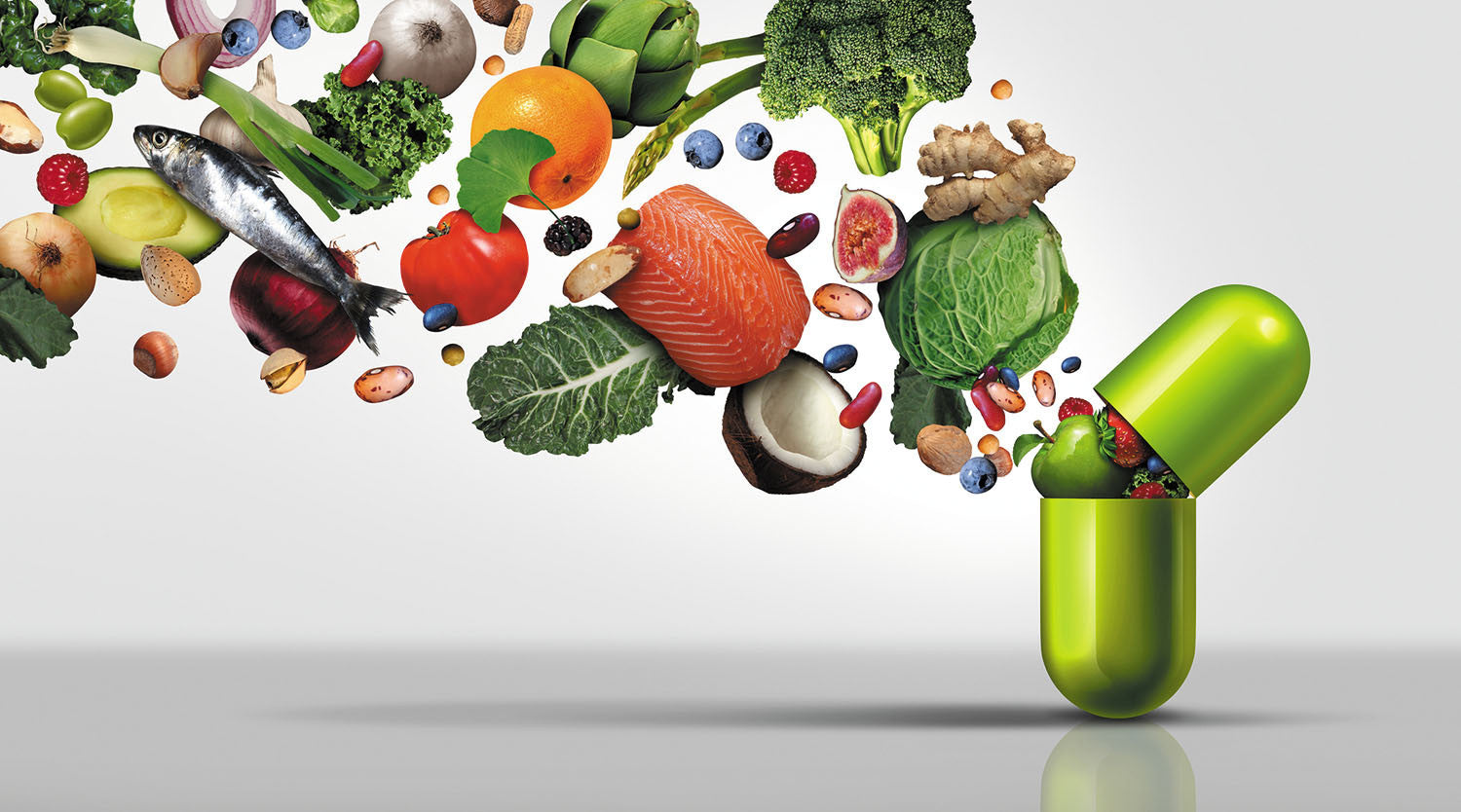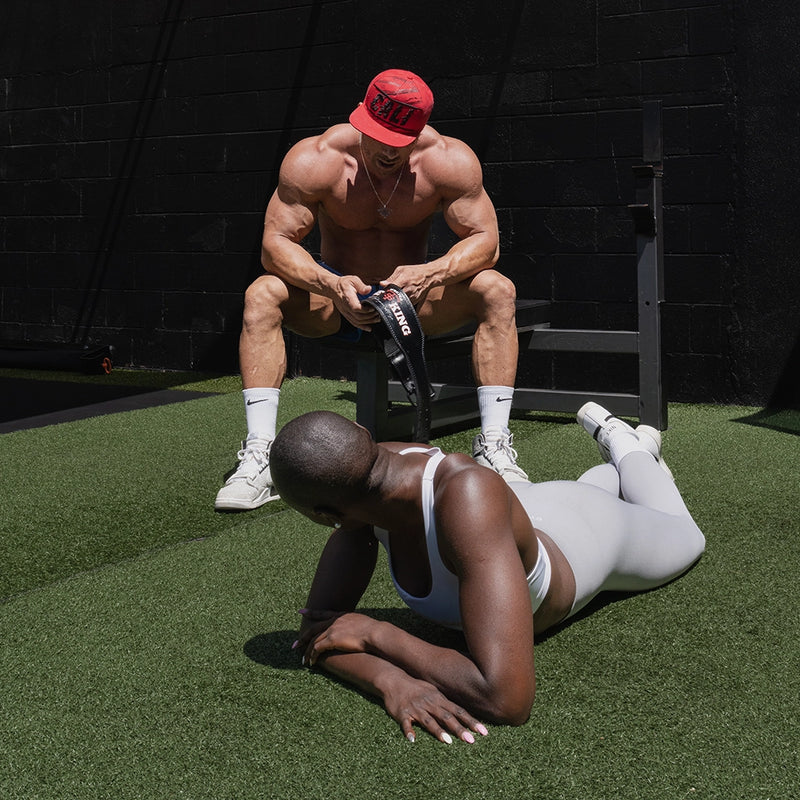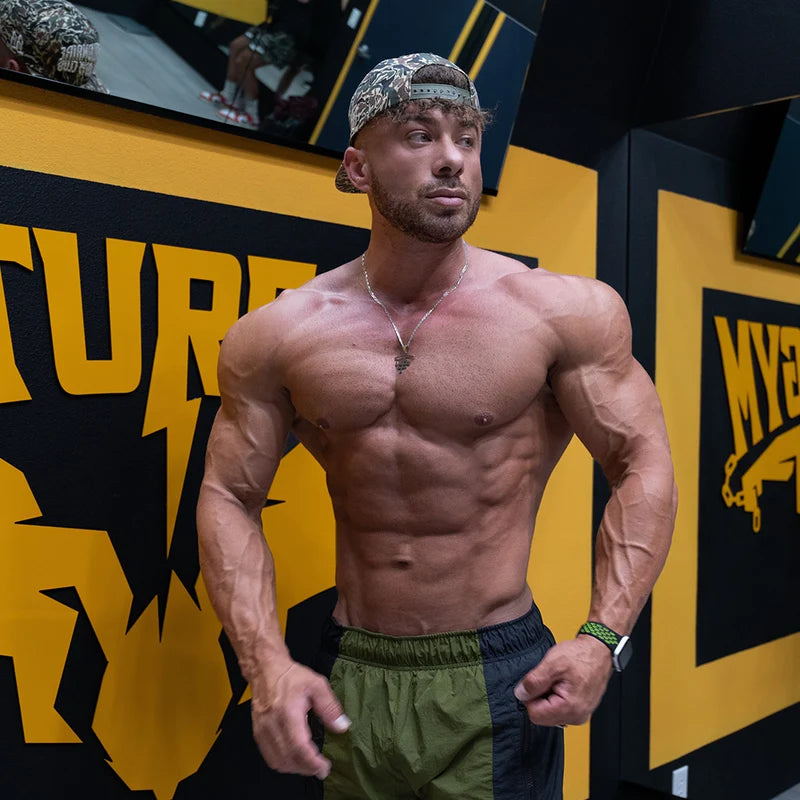News

The Role of Supplements for a Fit, Healthy Body
When it comes to optimizing your fitness, performance, and overall health, whole foods should always be the primary focus of your nutrition plan. However, strategically incorporating supplements can provide that extra 1% edge to achieve your goals more efficiently.
Whether you're looking to build muscle, burn fat, enhance endurance, or just cover your nutritional bases, various supplements can fit into your regimen. Let's examine some of the most popular and well-researched supplements for active individuals:
Multivitamins Even with a clean diet, getting the adequate levels of all essential micronutrients can be challenging. A basic multivitamin helps cover your bases for the vitamins and minerals involved in everything from energy production and muscle growth to bone health and immunity.
However, opt for an athlete-specific multi as they contain more bioavailable forms of nutrients and additional compounds beneficial for active lifestyles. Look for ones with antioxidants, phytonutrients, joint support ingredients, and in the appropriate male/female formulations.
Protein Powder Whey, casein, pea, soy, etc. - supplemental proteins are a convenient way to hit your daily protein targets to support muscle building and recovery. They allow you to quickly consume high-quality protein while limiting extraneous calories from whole food sources.
Whey is ideal post-workout due to its fast absorption kinetics. Casein is "slower" and great for extended periods without food. Plant proteins lack some essential aminos so combining sources is ideal.
Creatine One of the most well-researched, safe, and effective muscle-building supplements available. As a precursor to ATP, it allows you to push out more reps while also causing a cellular swelling effect that can amplify anabolic signaling.
Creatine has also been shown to have neuroprotective and cognitive benefits. For best results, load with a higher dose for 5-7 days before maintaining with 3-5 grams daily.
Fish Oil / Omega-3s These healthy fats provide wide-ranging anti-inflammatory benefits that can accelerate recovery, improve joint health, and enhance muscle protein synthesis when combined with resistance training.
Look for concentrated omega-3 supplements providing a balanced ratio of EPA and DHA. Aim for a minimum of 2-3 grams of combined EPA/DHA daily, but higher dosages may be required based on body size.
Pre-Workout Supplements An effective pre-workout should contain scientifically-backed nutrients to increase energy, focus, endurance and blood flow for better pumps:
Caffeine and/or other stimulants to heighten alertness and delay fatigue
L-citrulline or nitrates for increased nitric oxide and vasodilation
Beta-alanine to buffer lactic acid and combat fatigue
Creatine for power and strength outputs
Electrolytes and antioxidants to support hydration and recovery
The precise ingredients and dosages will depend on your goals and sensitivities, so read labels carefully.
Other Beneficial Compounds:
Vitamin D3 for hormone regulation, immunity and muscle function
ZMA (zinc, magnesium, vitamin B6) to optimize testosterone and recovery
Probiotics and fiber for gut health and nutrient absorption
Collagen and glucosamine for joint support
Exogenous ketones to promote fat burning without a strict keto diet
As with any supplement, be a savvy consumer - do your research on reputable brands and third-party testing to ensure transparency and efficacy. Used correctly, supplements can be a force-multiplier for your fitness goals when combined with proper nutrition and training. But they should complement, not replace, a nutrient-dense diet.

Muscle Gain: Scientific Insights for Maximum Growth
Whether you're an athlete looking to boost performance or just wanting to build an impressive physique, maximizing muscle growth is likely a major goal. Increasing lean muscle mass not only looks aesthetically pleasing, but it provides functional benefits like increased strength, power output and metabolism.
However, efficient muscle building is a complex process that requires getting several scientific factors aligned correctly. It's not just about lifting heavy weights - you need to employ the right training strategies while precisely managing nutrition, recovery and supplementation. Let's dive into the key elements:
Resistance Training for Muscle Growth The stimulus that drives muscle growth is literally breaking down muscle fibers through intense resistance training. By overloading the muscles with progressive increases in weight, reps and volume over time, you cause micro-tears in the muscle fibers. This signals the need to grow back bigger and stronger during the recovery process.
There are different resistance training methodologies aimed at triggering specific muscle growth adaptations:
Strength Training: This utilizes very heavy weights around 85-100% of your 1-rep max for low reps (1-5 range). It promotes maximum motor unit activation and fiber recruitment for pure strength gains.
Hypertrophy Training: The classic "body-building" style focuses on moderate weights of 65-85% 1RM for 6-12 reps per set. This maximize mechanical tension and metabolic stress to buck muscle fibers to grow in size.
Power Training: Explosive lifting of sub-max weights develops the ability to exert maximum force in minimal time. This triggers increases in motor proteins and muscle fiber composition for power output.
An effective muscle-building program will blend these training styles through periodization over mesocycles of 4-8 weeks. Progressive overload by incrementally increasing weight, reps, and overall volume is key to continually disrupting homeostasis and signaling for growth. Exercise variation, managing fatigue, and altering training stresses are critical as well.
Nutritional Strategies You can't build significant muscle without being in a caloric surplus consistently. A daily excess of 300-500 calories above your TDEE (Total Daily Energy Expenditure) is recommended for a lean muscle-building phase.
However, the most critical macronutrient for repairing and building new muscle tissue is protein. Generally, 0.7-1 gram of protein per pound of body weight (1.6-2.2g/kg) should be consumed daily when attempting to pack on size. Spacing out this intake every 3-4 hours and obtaining it from high-quality sources like lean meats, eggs, dairy and supplemental proteins is ideal.
Carefully timing peri-workout nutrition is also beneficial. Consuming fast-digesting proteins like whey along with some carbohydrates before training can prime the body for the impending stress. Then getting in another serving of whey and carbs post-workout provides amino acids to rapidly initiate repair and replenish depleted glycogen stores.
Healthy fats are important too as they regulate anabolic hormone production and provide a long-burning energy source. Micronutrient needs increase as well for growth processes - make sure to get sufficient vitamins and minerals from nutrient-dense foods.
Supplementation for Accelerated Growth While not strictly required, utilizing science-backed supplements can definitely enhance your muscle-building efforts:
Whey/Casein Protein: Quickly digesting whey is perfect for bookending workouts while slow-burning casein helps provide a steady amino acid pool.
Creatine Monohydrate: One of the most research-backed supplements, creatine increases workload capacity and promotes cellular hydration within muscles.
Branched-Chain Amino Acids (BCAAs): Leucine, in particular, directly stimulates muscle protein synthesis through activating mTOR pathways.
Beta-Alanine: By increasing muscle carnosine levels, it can buffer lactic acid accumulation to enable more total training volume.
HMB: A metabolite of leucine that decreases muscle protein breakdown rates.
Omega-3s: Fish oils provide anti-inflammatory benefits and aid in muscle protein metabolism.

Weight Loss: A Comprehensive Approach Integrating Exercise, Supplements and Diet
If you're looking to finally lose those stubborn pounds in a sustainable way, simply cutting calories through deprivation is not the answer. Achieving meaningful weight loss while maintaining muscle tone requires a multipronged approach that properly combines diet, exercise, and strategic supplementation. Let's delve into the details of optimizing each of these elements:
Dialing In Your Diet The fundamental premise of weight loss is creating a calorie deficit by burning more calories than you consume. However, not all calories are metabolized equally. The composition and quality of your diet has a profound impact.
An effective fat loss diet should:
Provide 0.6-1.0 grams of protein per pound of body weight from lean sources like chicken, fish, eggs and quality protein powders. This preserves muscle mass.
Include 0.25-0.4 grams of healthy fats per pound from sources like fish, nuts, seeds, olive oil and avocados to regulate hormones.
Derive the remaining calories from fibrous carb sources like vegetables, some fruits, oats, quinoa etc.
Create a moderate calorie deficit of around 300-500 calories below your TDEE (Total Daily Energy Expenditure). Larger deficits can backfire.
Focusing your diet around nutrient-dense, high-volume foods like lean proteins, veggies, low-calorie fruits and high-fiber carbs allows you to feel fuller on fewer calories. Meals higher in protein, fiber and volume promote increased satiety compared to ultra-processed, energy-dense foods.
An intermittent fasting protocol can also help enhance fat loss for some individuals. Consuming your calories in an 8-hour feeding window allows you to better regulate hunger hormones and potentially boost fat oxidation.
Strategically Exercising for Better Composition While managing your nutrition dictates whether you lose or gain weight overall, carefully selected training routines are vital for achieving a lean, sculpted physique during a fat loss phase.
An ideal exercise program will incorporate:
Cardio
Both HIIT (high-intensity interval training) and steady-state lower intensity cardio should be included
HIIT raises anaerobic capacity and EPOC (excess post-exercise oxygen consumption) to burn more calories
Steady-state sessions improve cardiovascular fitness and directly burn a higher calorie load
Resistance Training
This helps preserve lean muscle mass to prevent a metabolic slowdown during dieting
Lifting weights raises metabolism-boosting anabolic hormone levels
It enhances nutrient partitioning so you burn fat over muscle
The exercise programming should focus on progressive overload by incrementally increasing volume and intensity for both cardio and weights over time. Active recovery days are crucial as well to optimize fat loss.
Supplements to Accelerate Progress Integrating certain supplements can help augment the fat loss effects of your diet and training. However, don't expect miracles - these work best as an adjunct to an already optimized regimen.
Caffeine and Green Tea Extract Provide an acute metabolic boost by increasing thermogenesis and fatty acid mobilization from adipose tissue to be burned for fuel. Green tea also contains EGCG which may aid fat loss by inhibiting fat absorption.
L-Carnitine This amino acid helps shuttle fatty acids into mitochondria to be oxidized and burned off. It may also reduce exercise fatigue and muscle soreness.
Yohimbine Promotes lipolysis (fat mobilization) especially from stubborn areas like the abdomen and love handles. It should be taken before fasted cardio for maximal effects.
Fiber Supplements Increasing your daily fiber intake helps control appetite by promoting sustained feelings of fullness. It also improves gut health to enhance nutrient absorption.
Exogenous Ketones These ketone supplements can kickstart a higher ketogenic, fat-burning state even without following a strict ketogenic diet. They've been shown to potentially boost metabolic rate while reducing appetite as well.
The key with any supplements is transparency about reputable third-party testing and quality control. Also, don't expect them to compensate for poor diet and training adherence.
For optimal fat loss results, a multifaceted approach carefully managing diet quality and quantity, incorporating the right balance of cardio and resistance training, cycling in re-feed periods, ensuring adequate recovery time, and selectively utilizing supplements backed by research is required. With diligent tracking and adjustments, you can successfully burn fat while maintaining lean muscle over a sustainable period.

Emotional and Psychological Benefits of Bodybuilding
While the physical effects of packing on lean muscle and sculpting an aesthetic physique are the most evident rewards of bodybuilding, this journey provides immense emotional and psychological benefits as well. The empowering act of pushing your body to its limits through intense training breeds positive mindset shifts that permeate all aspects of life.
Boosting Self-Confidence and Self-Esteem There's something uniquely uplifting about witnessing your physique drastically changing shape through your dedicated efforts in the gym. The ability to continually surpass previous limitations builds self-confidence and a mindset of being unstoppable when you remain diligent. Achieving bodybuilding goals, no matter how small, instills a powerful sense of self-efficacy.
The body image improvements that come with adding slabs of muscle while getting leaner provide an incredible self-esteem boost as well. When you look better physically, you naturally carry yourself with more assertiveness and assurance. This newfound embodiment of masculinity or femininity radiates into how confidently you move through all walks of life.
Managing Stress and Improving Mental Health The bodybuilding lifestyle encourages routines centered around destressing through intense exercise. Blasting through a tough workout allows you to constructively channel any negative energy, anger or anxiousness into something positive. This helps process difficult emotions while flooding the brain with mood-elevating endorphins.
Over the long run, resistance training has been shown to reduce symptoms of depression, anxiety and insomnia thanks to its ability to increase neurochemicals like serotonin, dopamine and brain-derived neurotrophic factor (BDNF). Higher BDNF levels promote neuroplasticity to improve cognitive function.
Many bodybuilders find the ritual of consistently pushing their bodies to the limit provides them a profound sense of purpose that mitigates mental health issues. Checking off daily workout sessions instills a feeling of accomplishment and being in control.
Cultivating Self-Discipline and Life Skills The bodybuilding lifestyle promotes developing crucial self-discipline, determination and grit that transcend the weight room. Adhering to a very regimented nutrition plan, never missing training sessions, pushing through arduous periods - it takes fortitude to make these habits stick, especially through the tough periods of plateaus or injuries.
But instilling that level of commitment and consistency makes it easier to cultivate discipline in other aspects of your life, whether it's work, education, relationships, or any other sphere. Learning to delay gratification for the long-term rewards of bodybuilding lays the mental framework to unlock significant achievements.
Additionally, the lessons learned from the constant problem-solving involved in tailoring your nutrition and training ultimately boost decision-making abilities and dealing with setbacks. The journey forces you to be a student, researching and tweaking variables through systematic trial-and-error.
Fostering Social Connections and Community While many perceive bodybuilding as very individual and selfish, some of the closest bonds are forged through the shared struggle and sacrifice with like-minded people. The bodybuilding community is filled with incredibly supportive groups, whether locally or online, that create a strong sense of belonging and accountability.
Having spotters, training partners and forums of fellow bodybuilders enhances the journey tremendously through consistent motivation, advice, and unwavering support through the inevitable rough patches. You witness inspiring physical and mental transformations collectively. These are connections grounded in pushing each other to be better versions of themselves daily.
At its core, bodybuilding shapes mental fortitude, instilling invaluable traits like discipline, delaying gratification, determination, and grit through continuously grinding away at the weight stack. But it also sparks profound confidence, efficacy and sense of purpose that bleed into all aspects of life. Combined with fostering a strong community, bodybuilding provides a transformative physical and psychological awakening.
